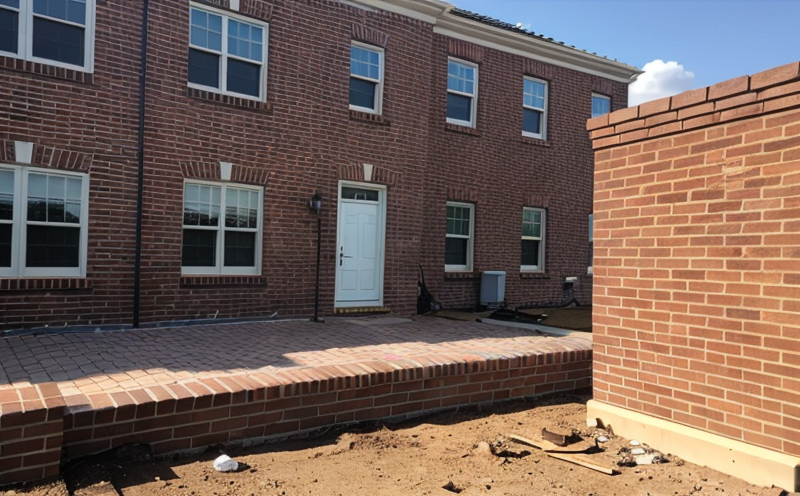EN 772 Surface Abrasion Resistance
The EN 772-3 standard specifies a method of testing the resistance to surface abrasion of fired clay masonry units. This test is particularly important for ensuring that building materials, especially bricks and blocks used in construction, are durable and can withstand the environmental stresses they will encounter during their service life.
This type of testing is crucial in the Building & Infrastructure sector as it helps ensure the longevity and reliability of masonry structures. The test measures how much a brick's surface wears away under controlled conditions that simulate real-world wear from foot traffic, weathering, and other environmental factors. Understanding this resistance helps construction professionals make informed decisions about material selection to suit specific project requirements.
The EN 772-3 standard defines the procedure for conducting abrasion tests on fired clay masonry units using a rotating drum apparatus. The test involves placing the brick specimen in a rotating drum filled with abrasive particles and water, which simulates wear and tear over time. After a specified number of revolutions, the mass loss is measured to determine the surface abrasion resistance.
The significance of this testing cannot be overstated, especially for large-scale construction projects where material durability directly impacts overall project cost and sustainability. By adhering to rigorous standards like EN 772-3, construction companies can ensure that materials meet required specifications and perform optimally in the field.
For R&D engineers involved in developing new brick formulations, this test is invaluable for understanding how different raw materials and production processes affect the final product's durability. It allows them to make adjustments during the design phase to improve performance without compromising on aesthetic or other critical properties of the material.
In terms of quality assurance, testing according to EN 772-3 provides a consistent method for evaluating brick surfaces, ensuring uniformity across batches and suppliers. This is particularly important in industries where batch-to-batch consistency is paramount, such as those involved in large-scale infrastructure projects or high-profile architectural designs.
The test also plays a role in compliance with international standards, which is crucial for companies operating globally or exporting products to markets that have stringent requirements for material durability. Compliance with these standards can open up new market opportunities and enhance brand reputation.
Applied Standards
| Standard | Description |
|---|---|
| EN 772-3 | This European standard specifies the method for determining the resistance to surface abrasion of fired clay masonry units. It is widely used in Europe and provides a standardized approach to testing, ensuring comparability across different laboratories. |
Quality and Reliability Assurance
The EN 772-3 test is critical for quality control in the manufacturing process of fired clay masonry units. By regularly testing samples according to this standard, manufacturers can identify any inconsistencies or issues early on, allowing them to address problems before they become significant defects.
For construction companies and architects, ensuring that bricks meet EN 772-3 standards is essential for project success. Non-compliance could lead to premature failure of the structure, which would not only be costly but also potentially dangerous. Regular testing helps maintain a high standard of quality throughout the supply chain.
The test results provide objective data that can influence decisions on material selection and design. For instance, if a particular brick type consistently fails abrasion tests, it may be necessary to switch suppliers or modify the design to use more durable materials. This proactive approach helps prevent costly rework and delays during construction.
In addition to its role in manufacturing and construction, the EN 772-3 test is also valuable for research and development purposes. Engineers can use the results to refine brick formulations and production processes, leading to innovations that enhance material performance while maintaining cost-effectiveness.
The reliability of the test results is further enhanced by the standardized procedures outlined in EN 772-3. This ensures consistency across different laboratories, making it easier for stakeholders to compare data from various sources. This uniformity is particularly beneficial in large-scale projects where multiple suppliers and contractors are involved.
Environmental and Sustainability Contributions
- Reduces the environmental impact of construction by ensuring that bricks used are durable and can withstand harsh conditions, thereby reducing the need for frequent replacement or repair.
- Encourages the use of recycled materials in brick production, promoting a circular economy approach to resource management.
- Promotes sustainable design practices by providing data on material performance that can be used to create more resilient and long-lasting structures.





